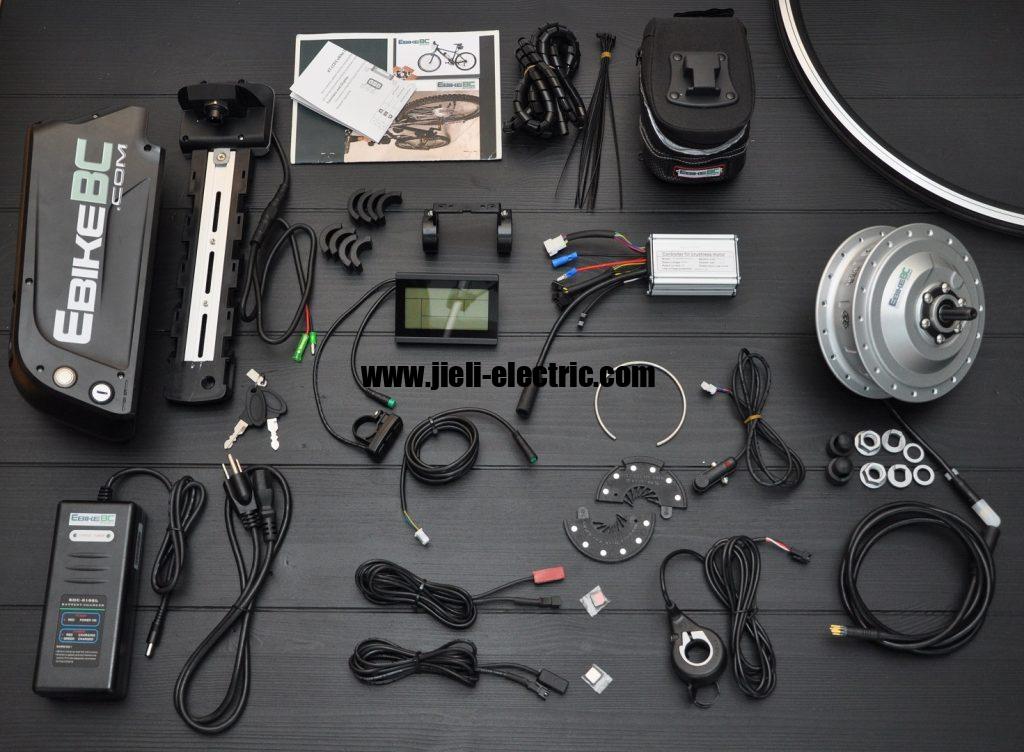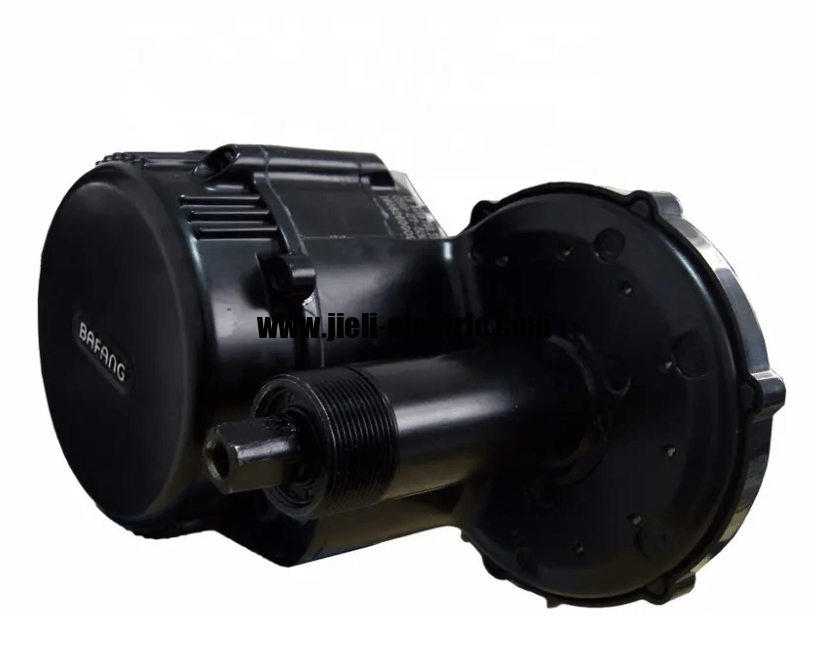As the popularity of e bikes continues to rise, understanding the factors that influence their reliability becomes increasingly essential for consumers and manufacturers alike. The quality of components plays a crucial role in determining how e bikes perform under various conditions, impacting their longevity and user satisfaction. Additionally, battery performance is a key determinant, as it directly affects the bike’s range and efficiency. Regular maintenance practices can also significantly enhance e bike reliability, ensuring that potential issues are addressed proactively. Finally, environmental factors and riding conditions can further influence the performance and durability of e bikes, making it vital for users to consider these elements when seeking to make e bikes reliable for their intended use.
Key Takeaways
High-quality components and regular maintenance significantly enhance e-bike durability and performance.
Battery health and performance are critical for e-bike reliability, influenced by usage patterns and environmental conditions.
Routine inspections and a detailed maintenance history contribute to overall reliability and fewer issues.
Brand reputation and thorough testing are essential for ensuring quality and comfort in e-bike performance.
Components Quality
The quality of components significantly influences the overall reliability of e-bikes, impacting both performance and longevity. High-grade materials in the frame and structure can enhance durability, reducing the likelihood of mechanical failures. Superior battery technology is essential for ensuring consistent power delivery, directly affecting range and efficiency. Additionally, reliable braking systems are crucial for safety, where subpar components could lead to increased stopping distances. The integration of premium electrical components can minimize the risk of faults in the circuitry, contributing to a seamless user experience. Furthermore, the choice of tires plays a pivotal role in traction and stability, influencing handling characteristics. Overall, investing in quality components is vital for maintaining the long-term performance and dependability of e-bikes.
Battery Performance
Battery performance is a critical factor influencing the overall reliability of electric bikes. It encompasses various elements that can significantly impact both the longevity and efficiency of the battery system. Understanding key aspects such as battery life expectations, charging cycle impact, and temperature effects on performance is essential for optimizing e-bike operation.
Battery Life Expectations
Understanding battery life expectations is crucial for users to make informed decisions regarding their electric bike usage and maintenance. Battery life can vary significantly based on factors such as usage patterns, terrain, and rider weight. Users should be aware that regular charging cycles affect the overall lifespan of the battery, with deeper discharges generally leading to reduced longevity. Additionally, temperature fluctuations can impact battery performance, necessitating careful consideration of storage conditions. Ultimately, maintaining optimal battery health is essential for ensuring reliable e-bike operation over time.
Charging Cycle Impact
Charging cycles play a pivotal role in determining the overall lifespan and efficiency of electric bike batteries. Each cycle, defined as a full discharge followed by a complete recharge, contributes to the gradual depletion of battery capacity. Frequent partial charges can also influence the battery’s health, potentially leading to a reduction in its effective range. Additionally, the chemistry of the battery affects how it responds to charging cycles, with lithium-ion variants commonly used in e-bikes exhibiting specific characteristics. Therefore, managing charging behavior is essential for maintaining optimal battery performance over time.
Temperature Effects on Performance
Temperature fluctuations can significantly affect the chemical reactions within a battery, ultimately impacting its efficiency and lifespan. High temperatures can accelerate the degradation of battery materials, leading to a decrease in capacity over time. Conversely, low temperatures can hinder the electrochemical processes, resulting in reduced power output and range. Maintaining an optimal operating temperature is crucial for maximizing battery performance and reliability. Consequently, e-bike manufacturers must consider temperature management strategies to enhance the durability of their battery systems.
Maintenance Practices
Regular maintenance practices play a crucial role in enhancing the reliability and longevity of e-bikes. Routine inspections of the battery and electrical components ensure optimal performance and prevent unexpected failures. Proper lubrication of the drivetrain minimizes wear and tear, contributing to a smoother ride. Tire pressure checks are essential for maintaining traction and safety, as under-inflated tires can lead to increased resistance and reduced efficiency. Additionally, brake system evaluations are vital to ensure responsiveness and rider safety. Keeping the frame and components clean helps to prevent rust and corrosion, further extending the lifespan of the e-bike. Overall, consistent maintenance not only enhances the performance of e-bikes but also promotes a safer riding experience.
Environmental Impact
The environmental impact of e-bikes is a crucial factor influencing their reliability and acceptance in urban transportation systems. Their low emissions contribute to improved air quality, reducing the carbon footprint compared to traditional vehicles. E-bikes also promote sustainable urban mobility by encouraging shorter commutes and decreasing reliance on fossil fuels. The materials used in e-bike manufacturing, as well as their recyclability, play a significant role in minimizing ecological harm. Furthermore, the energy consumption associated with e-bike operation is generally lower than that of cars, enhancing their appeal as a green alternative. Public perception of e-bikes is often shaped by their environmental benefits, which can influence policy decisions and infrastructure development. Understanding the environmental implications sets the stage for examining how varying riding conditions can further impact e-bike reliability.
Riding Conditions
Riding conditions, including terrain, weather, and road quality, significantly influence the overall reliability and performance of e-bikes. Varied terrains, such as hills, gravel paths, or urban environments, can impose different levels of stress on e-bike components. Adverse weather conditions, including rain, snow, or extreme heat, can affect battery efficiency and mechanical functioning. Poor road quality, characterized by potholes and uneven surfaces, can lead to increased wear and tear on tires and suspension systems. Additionally, the rider’s behavior in response to these conditions can further impact the longevity and reliability of the e-bike. Riders must be aware of their surroundings and adjust their riding style to mitigate risks associated with challenging conditions. Ultimately, understanding these factors is crucial for optimizing the performance and reliability of e-bikes in diverse riding environments.
Frequently Asked Questions
What are the common signs of e-bike reliability issues?
Common signs of e-bike reliability issues can manifest through various mechanical and electronic symptoms. Riders may experience diminished battery performance, such as reduced range or slower charging times, indicating potential battery degradation. Additionally, inconsistent power delivery, where the motor intermittently cuts out or fails to engage, can suggest issues with the electrical system or connections. Noise anomalies, such as unusual grinding or clicking sounds from the motor or drivetrain, may also point to mechanical wear or failure. Furthermore, frequent error codes on the display can signify underlying software or hardware malfunctions that require attention. Regular maintenance and prompt attention to these signs are essential for ensuring optimal e-bike performance and longevity.
How does the brand reputation influence e-bike reliability?
Brand reputation plays a critical role in influencing perceptions of e-bike reliability among consumers. Established brands often have a history of product performance and customer satisfaction, which can instill greater confidence in potential buyers. Companies with a strong reputation typically invest more in research, development, and quality control, resulting in more reliable products. Furthermore, reputable brands are more likely to offer comprehensive warranties and responsive customer service, which can mitigate concerns regarding potential reliability issues. Conversely, lesser-known brands may lack the same level of scrutiny and may not have proven track records, leading to skepticism about their products. Ultimately, the brand reputation can significantly impact consumer trust and the likelihood of purchasing an e-bike, as reliability is a key consideration for many buyers.
What should i consider when purchasing a used e-bike for reliability?
When purchasing a used e-bike, several critical factors should be considered to ensure reliability. First, it is essential to examine the overall condition of the bike, including the frame, tires, and electrical components, as wear and tear can significantly impact performance. Additionally, inquire about the battery’s health, as battery longevity is a key determinant of an e-bike’s reliability; a battery replacement can be costly. Another important aspect is the maintenance history; bikes that have been well-maintained are likely to perform better and have fewer issues. Furthermore, consider the brand and model, as some manufacturers are known for their durability and reliability over others. Finally, test ride the e-bike to assess its functionality and comfort, ensuring it meets your specific needs for a reliable commuting option.
Conclusion
In summary, the reliability of e-bikes is influenced by a multitude of factors, including the quality of materials, battery technology, and regular maintenance practices. A thorough understanding of the components and their respective impacts on performance is essential for ensuring optimal functionality and longevity. Additionally, environmental conditions and rider behavior play significant roles in determining the overall durability of these vehicles. The importance of brand reputation and comprehensive warranties cannot be understated, as they often correlate with higher consumer confidence and product reliability. Ultimately, informed purchasing decisions and routine inspections are vital for maximizing the benefits of e-bike ownership.
If you’re interested in enhancing your knowledge about electric bikes, I highly recommend visiting this informative page on Understanding the Benefits of a Specialized E-Bike. It delves into how specialized designs can significantly improve reliability and performance, making it a valuable resource for any e-bike enthusiast. Don’t miss out on the insights that can help you make informed choices!


